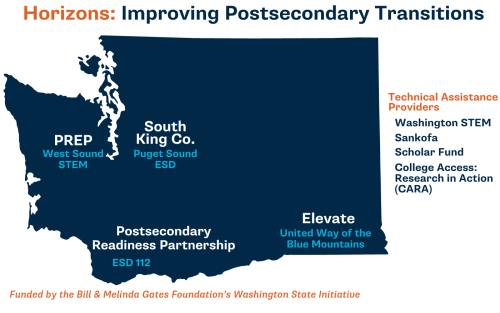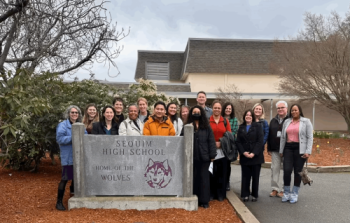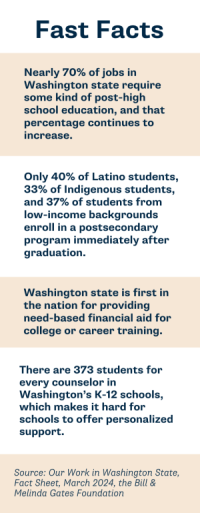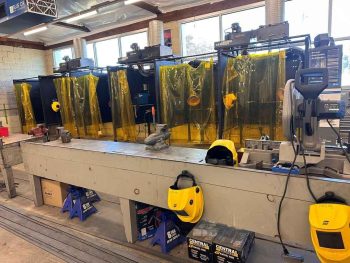Washington STEM leads Horizons grants

Washington STEM will manage the Horizons grants, a four year regional partnerships to boost student transitions from high school to 1-year certificate programs, two- and four-year degree programs and apprenticeships. The Horizons partnerships, funded by the Bill & Melinda Gates Foundation includes K-12 schools, colleges, and community-based organizations in the Olympic and Kitsap peninsulas, the Southwest region, the Palouse, and South King County. Read the announcement of the four-year grant here.
Washington STEM will also provide technical assistance to regional partners as they build capacity around accessing and leveraging data to improve student outcomes.

Washington STEM Chief Impact Officer, Jenée Myers Twitchell said, “For example, getting access to the National Data Clearinghouse, which tracks all student postsecondary enrollment rates, would be a game changer for schools as it will let them gauge the effectiveness of their college and career advising programs.”
Other technical advisors in the partnership include Sankofa, Scholar Fund, and College Access: Research in Action (CARA). These experts in their field will work with education partners to, respectively, enhance measurement and evaluation, equity and student voice (surveys), and advising, all through a continuous improvement model aimed at sustainability.

The Horizons partners came together during site visits in March and April to strengthen relationships, experience what makes each site unique, and understand how the regional partners will leverage these strengths to support their students.
While on the site visit to the Kitsap and Olympic Peninsulas, Washington STEM CEO, Lynne Varner noted the presence of a college counselor from Peninsula College embedded in Sequim High School. She said, “This sends a clear message to students that continuing their education is important—and they can hear directly from college staff about career pathways.”
She also pointed out how the counselor having an office in the high school allows for privacy. “Students may want to talk about attending historically Black colleges and universities, financial aid, or other private matters.”
Also, many of the schools have their own unique career and technical education (CTE) programs that prepare students for careers in local industries, whether they be in fisheries and seafood science at the Chief Kitsap School that serves a 90% Native student population, or the automotive technician programs in Prescott School District in the Palouse.

Varner said, “We are excited to partner with these incredible groups of educators who are committed to building on their strengths and designing the sustainable, well-light career pathways these communities deserve.”
